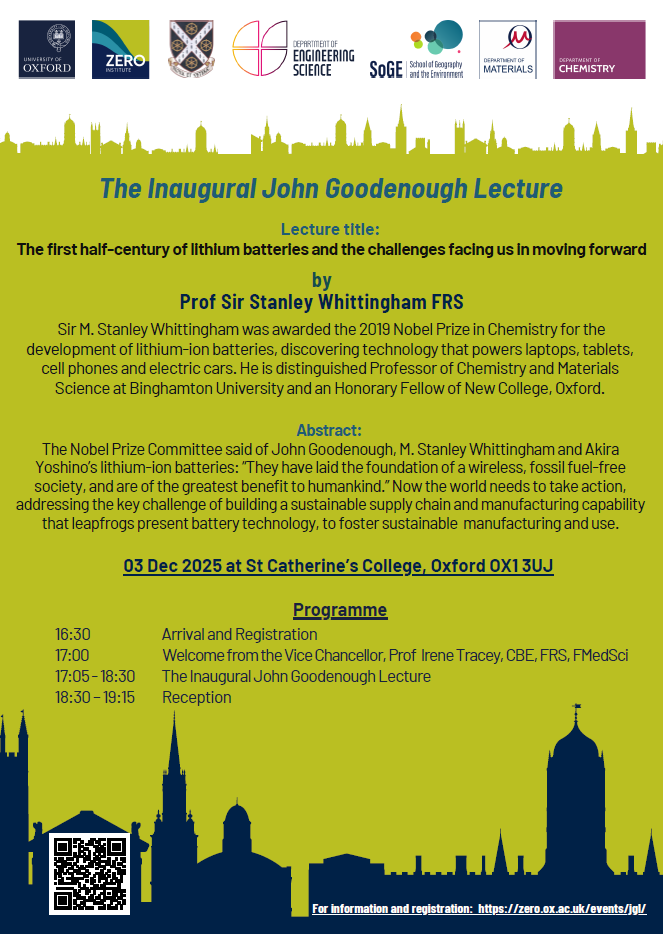The ZERO Institute, in collaboration with St Catherine’s College and the Oxford Department of Chemistry, is delighted to host the inaugural John Goodenough Lecture, to celebrate discovery in science and engineering.
The first half century of lithium batteries and the challenges facing us in moving forward
Guest Lecturer: Sir M. Stanley Whittingham FRS, distinguished Professor of Chemistry and Materials Science at Binghamton University and Honorary Fellow of New College, Oxford. Sir M. Stanley Whittingham was awarded the 2019 Nobel Prize in Chemistry for the development of lithium-ion batteries.
Abstract: The Nobel Prize Committee said of John Goodenough, M. Stanley Whittingham and Akira Yoshino’s lithium-ion batteries: “They have laid the foundation of a wireless, fossil fuel-free society, and are of the greatest benefit to humankind.” Now the world needs to take action, addressing the key challenge of building a sustainable supply chain and manufacturing capability that leapfrogs present battery technology, to foster sustainable manufacturing and use.
Programme:
- 16:30, Arrival at St Catherine’s College.
- 17:00, Welcome from the Vice Chancellor, Prof Irene Tracey, CBE, FRS, FMedSci.
- 17:05 – 18:30, Lecture, the Riverside Lecture Theatre.
- 18:30 – 19:15, Reception, the Riverside Foyers and Walkway.
Venue: St Catherine’s College, Oxford OX1 3UJ (map)
Due to the exceptionally high number of responses received so far, we may not be able to guarantee in-person attendance to all participants. Further details will follow. For any enquiries please contact us at zero@eng.ox.ac.uk.
All ZERO Institute’s events abide by our Code of Conduct.
The ZERO Institute (Zero-carbon Energy Research Oxford) brings together researchers from across the University of Oxford to tackle questions surrounding zero-carbon energy systems, and to accelerate multi-disciplinary research on the zero-carbon transition.

